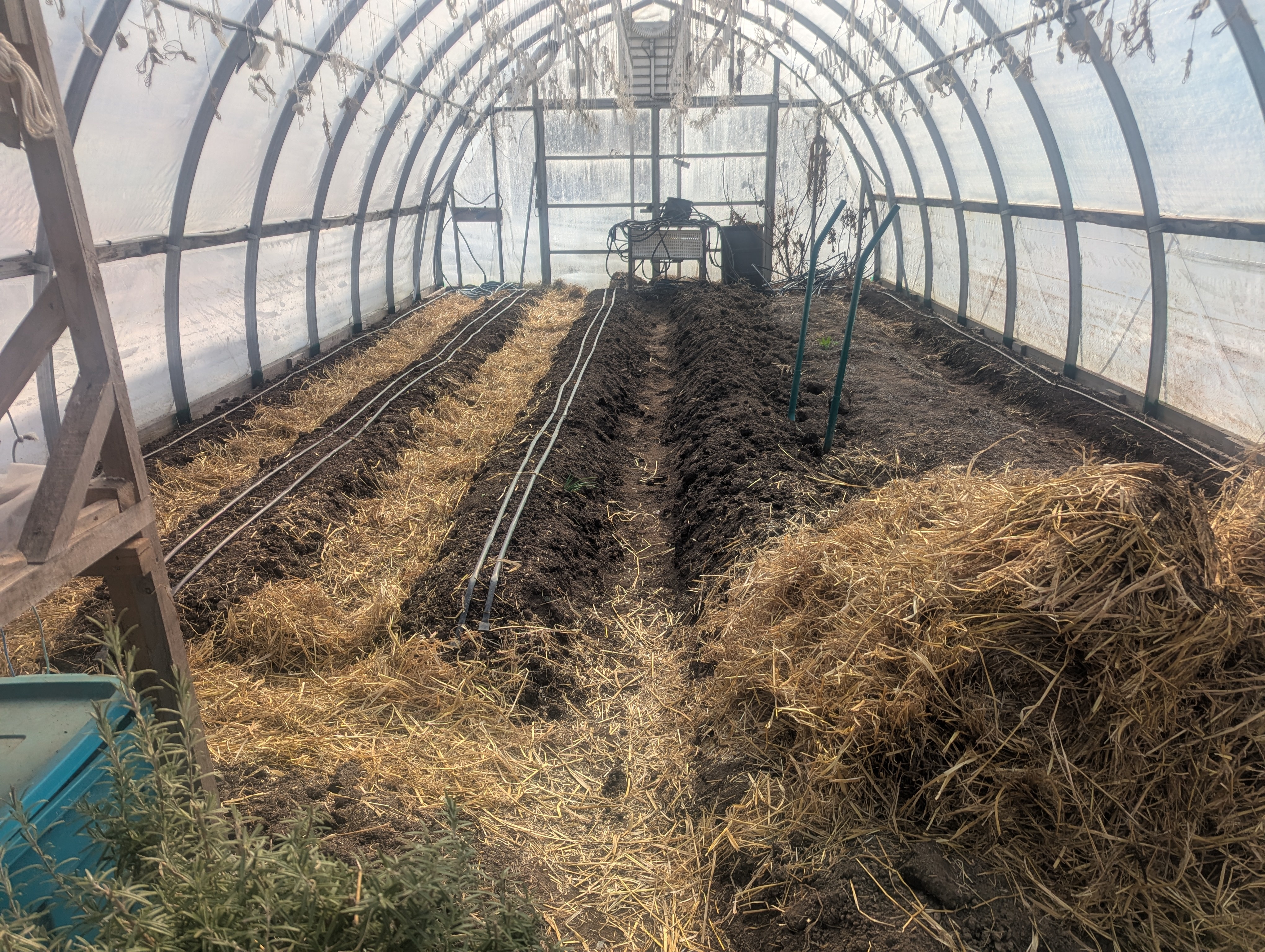We live in a Northern Climate so we are just getting started in the unheated high tunnel for our first plant of the spring season. We use all no till methods and no motorized equipment aside from a quad and a truck to help us move heavy stuff in our gardens.
Since we load the pathways with lots of straw for mulch they make compost just from use. We also drop a lot of healthy plant trimmings and smaller weeds onto the straw. This helps them dry out in the sun and eventually compost down as well adding nutrients back to our soil. Every couple of years we broadfork the entire thing and shovel up the compost from between the rows to help feed the plants. This works so well we often have to remove soil from inside the greenhouse because it makes too much.
Another good use for your bigger and well rooted "weeds" is to use them in a Korean natural farming way and add them to water to slowly decompose and release their nutrients. These weeds all grow well in whatever type of soil you have, meaning they can extract nutrients easily.from that soil. Exactly what you are aiming to do with your garden plants. Therefore they have high nutrient content you can use that otherwise may be unavailable to your plants. They compost quickly when placed in water and leave behind all the nutrients they have used to grow from your soil. Strain out the solids for your compost pile and use the liquid as a fertilizer. Be careful to avoid invasive species and plants in seed.
Gardening has become a huge part of our lives. We love it. We provide a lot of our own veg for the entire year. Even though winter shuts us down from growing for 5 months or so.
